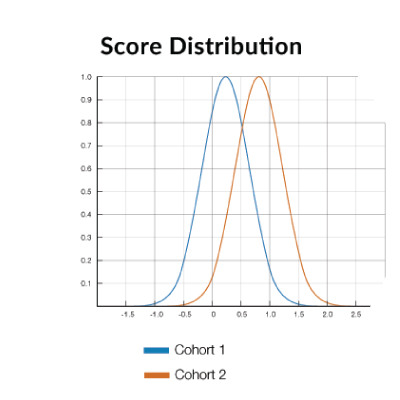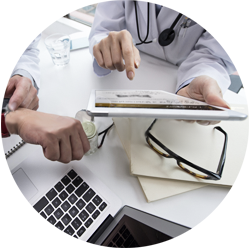-
Using Face2Gene to reference all my department’s cases, share information with my colleagues and quickly look up relevant information in the London Medical Databases Online saves me hours of work every week and allows me to focus on my patients.

Dr. Ibrahim Akalin
Assoc. Prof. Ibrahim Akalin, MD, Medical Geneticist from the Istanbul Medeniyet University, Istanbul, Turkey
-
FDNA’s game-changing technology introduces an objective computer-aided dimension to the “art of dysmorphology”, transforming the analysis into an evidence-based science.

Dr. Michael R. Hayden
Chairman of FDNA’s Scientific Advisory Board & Steering Committee and Editor in Chief of Clinical Genetics
-
FDNA is developing technology that has the potential to help so many physicians and families by bringing them closer to a diagnosis- there are literally millions of individuals with unusual features around the world that lack a diagnosis and therefore lack information on natural history, recurrence risk and prevention of known complications.

Dr. Judith G. Hall
Professor Emerita of Pediatrics & Medical Genetics UBC & Children's and Women's Health Centre of BC
-
FDNA has been “right on the money”, providing me with relevant, accurate and insightful information for differential diagnoses.

Dr. Cynthia J.R. Curry
Professor of Pediatrics UCSF, Adjunct Professor of Pediatrics Stanford
-
I am excited to be a part of the FDNA community, promoting broad information sharing with my peers to amplify the scientific and clinical value of our community’s accumulated knowledge for the purpose of efficiently diagnosing individuals with rare genetic disorders.

Dr. Karen W. Gripp
Chief, Division of Medical Genetics A.I. duPont Hospital for Children
-
FDNA's idea of incorporating several dysmorphology resources (OMIM, GeneReviews), supported by their visual analytic technology, will be able to improve researching of genetic syndromes - all within a single mobile app.

Dr. Chad Haldeman-Englert
Assistant Professor Pediatrics at Mission Fullerton Genetics
-
Given the advancement of visual analytical technology, it’s about time Dysmorphology is supported with computational capabilities and moving this to mobile support, is simply the next logical step.

Dr. Chanika Phornphutkul
Associate Professor of Pediatrics Director, Division of Human Genetics Department of Pediatrics Warren Alpert Medical School of Brown University
-
Having an archive of cases easily accessible from my mobile device anytime and anywhere is a long-time unmet need.

Dr. Lynne Bird
Rady Children's Specialists of San Diego
-
FDNA's solution is a huge leap forward for dysmorphology. It saves me significant time when I’m evaluating patients in my clinic and provides me with insightful tools that help me generate a differential diagnosis.

Dr. David A. Chitayat
Head of the Prenatal Diagnosis and Medical Genetics Program at Mount Sinai Hospital, Toronto
-
Shortly after learning about Face2Gene, I’ve started to incorporate this amazing tool into my workflow. Soon enough, Face2Gene’s analysis flushed out references that I would not have considered for several of my patients, which turned out to be their correct diagnosis

Dr. Zvi U. Borochowitz
Chairman (Retired) of The Simon Winter Institute for Human Genetics at Bnai-Zion Medical Center, Technion-Rappaport Faculty of Medicine
-
The Unknown Forum from Face2Gene is a great community platform for exchanging opinions regarding undiagnosed cases. It is straightforward to use and safe for exchange of medical data, thanks to the efforts of its developers and to the involvement of geneticists worldwide.

Dr. Oana Moldovan
Clinical Geneticist at the Hospital Santa Maria, CHLN, Lisbon, Portugal

























































